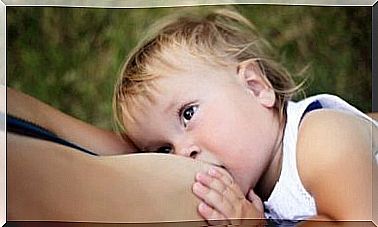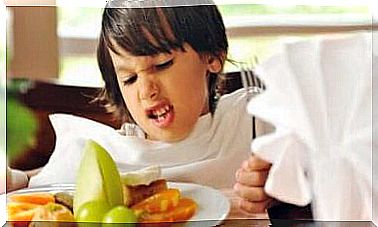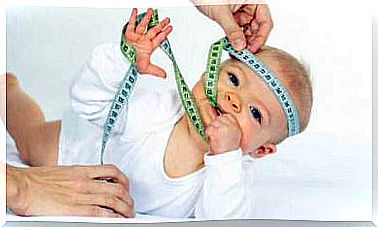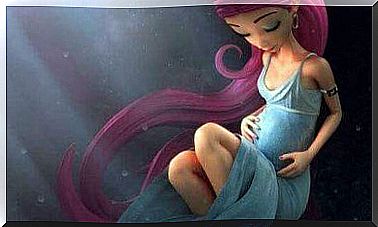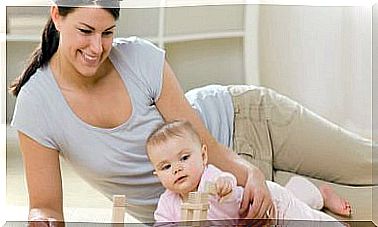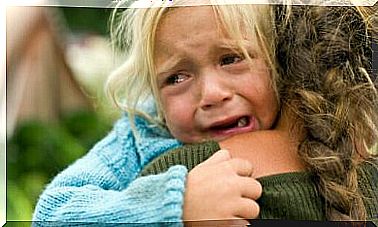Vomiting And Nausea During Childbirth

Vomiting and nausea during childbirth are common problems caused by various factors, such as hormonal changes or internal gynecological examinations during childbirth. However, there are many ways to control postpartum nausea and vomiting – in this article, we’ll talk more about that.
Studies show that vomiting is very common, not only during childbirth, but throughout pregnancy. 70-80% of women experience vomiting at some point during pregnancy. Most suffer from nausea during the first trimester of pregnancy and a smaller number experience symptoms throughout pregnancy until delivery.
Fatigue and dehydration
Often a pregnant woman feels exhausted as a result of vomiting. Physical fatigue and dehydration also have a direct effect on a woman’s emotions. There may be feelings of frustration, betrayal, fear, and confusion that affect a woman’s attitude toward childbirth.
If dehydration occurs as a result of vomiting, the woman’s body experiences physiological difficulties in continuing the birth process. This can lead to a delay in delivery or the birth process may even stop due to ketosis.
We also often talk about morning sickness during pregnancy, but it is seldom mentioned how common vomiting and nausea during childbirth are common. On top of that, still painful contractions.
Pain is not the only factor that causes vomiting. The epidural can also cause a woman to vomit during childbirth if blood pressure suddenly falls.
Whatever is behind the vomiting during childbirth, it is important to stay well hydrated.
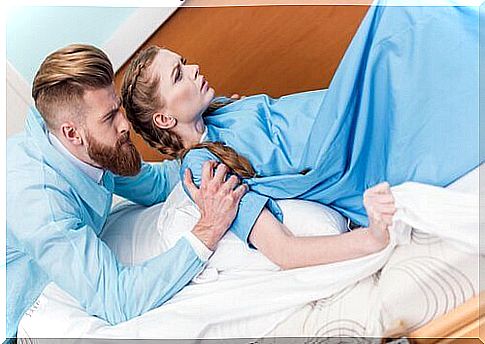
What causes vomiting during childbirth?
1. You limit your eating
Some women feel hungry and thirsty during childbirth, especially during the first stages of childbirth. Eating is important in the early stages of labor because you need energy during the active phase of labor.
In addition to stressors, restricting eating during childbirth can cause dehydration and ketosis. This happens when the body starts burning fat instead of using it for its energy.
2. Dehydration
It is important to drink as much water during childbirth as usual, even more. Dehydration is the most likely cause of vomiting during pregnancy and childbirth. So it’s good to keep in mind that when your body isn’t getting enough fluids, you’ll easily feel unwell.
Dehydration causes extra pressure, which may cause vomiting of bile and blood.
3. Medication
Some painkillers and anesthetics given during childbirth may cause vomiting. When a woman receives her dose of medicine while unconscious, she is unable to control her breathing or swallowing. Because of this, there is a tendency to vomit.
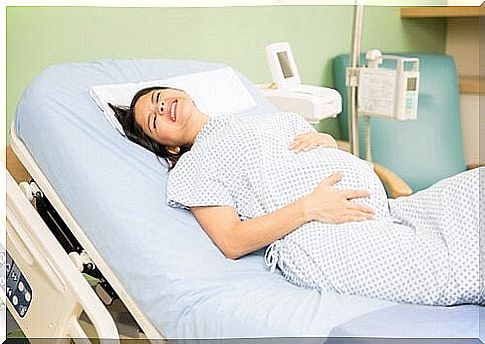
4. Certain foods and beverages
In some cases, certain foods and beverages can cause vomiting during childbirth. If this is the case for you, drink water instead of juice and eat soups and bananas.
In addition, it may be that the vomiting may be caused by your own fears or sorrows. During childbirth, a woman goes through many strong emotions and they can also be affected physically. So try to identify and resolve your own concerns in advance.
So remember that to prevent vomiting during childbirth, eat light meals during the first stage of childbirth. During the active phase of labor, it is best to drink only water.

